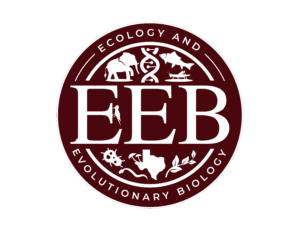Below are the research themes of EEB Core Faculty. Click on the research theme to see the faculty members in that theme. To see the list of all faculty with individual research themes, click here.
Behavioral Ecology (Integrative Animal Behavior) is the study of the evolutionary basis for animal behavior due to ecological pressures.
Community Ecology is the study of how populations of species organize and interact with each other and the environment.
Conservation Biology/Restoration Ecology is the study of biodiversity and how to sustainably protect, manage, and restore degraded habitats.
Ecosystems/Landscape Ecology is the study of the dynamics of ecological processes through time across a variety of spatial scales.
Evolutionary Ecology is the study of interactions between organisms and their environments from an evolutionary perspective.
Evolutionary Genomics is the study of genome evolution.
Phylogenetics & Comparative Biology is the study of evolutionary relationships among organisms, and the mechanisms and patterns that drive the evolution of those relationships.
Physiological Ecology is the study of relationships between the physiology of organisms and their adaptation to environmental conditions.
Population Ecology is the study of population dynamics over space and time and how populations interact with the environment.
Population & Quantitative Genetics is the study of genetic differences within and between populations and assessment of variability of continuous phenotypes.


